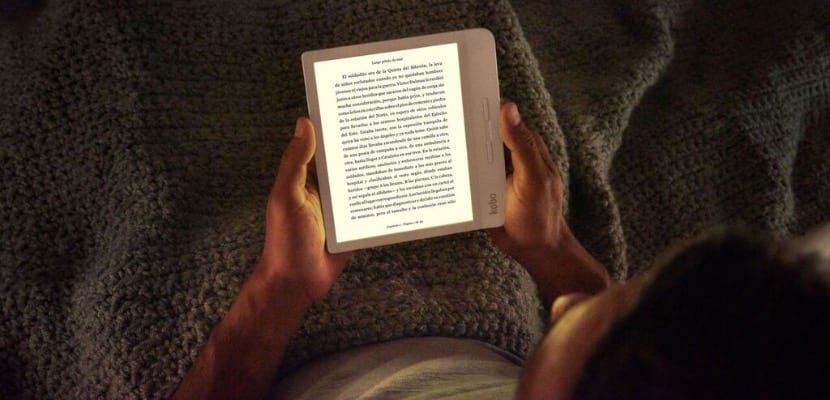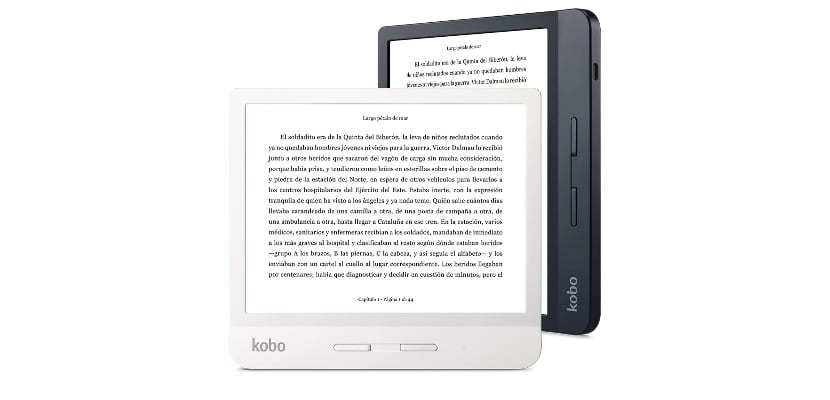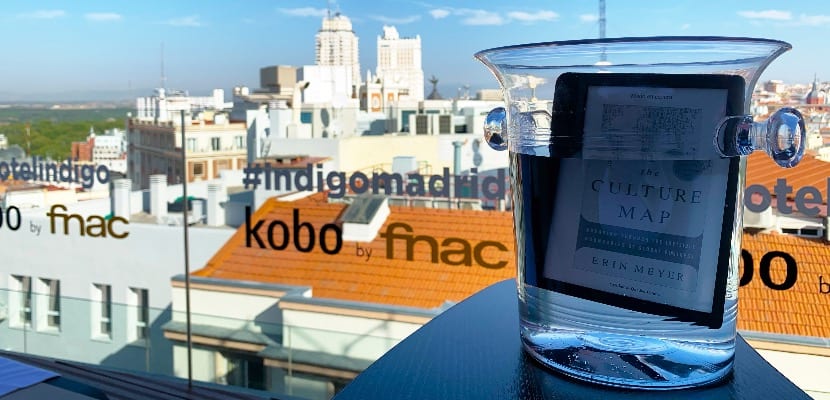
Electronic books are an increasingly important part of our daily lives, despite the fact that in Spain the market-share of this type of books is approximately 5%, it is quite true that in other markets such as North American and British e-book is a very important part of the market. We have had the pleasure of interviewing Fabián Gumucio, the head of Rakuten Kobo in Europe who was in our country as part of the Davis Cup by Rakuten activities organized these days. The talk we have had with Fabián has been enriching, this has been our interview, don't miss it.
We are in the Lounge of the Caja Mágica, the emblematic Madrid tennis court that has a retractable roof technology unique in the world. This is where Fabián has seen fit to invite us to enjoy a relaxed talk about the present and the future of electronic books, especially how Rakuten Kobo is going to face the new challenges of the market and how it intends to consolidate its user base.
P- We start with an almost obligatory question: Are you thinking of working on an interface for your eBooks that has something to do with Android?
R- Yes and no. The interface we have is based on Android technology. If the question is about whether we plan to integrate an Android interface more similar to that of tablets, the answer is no.
Q- Any functionality beyond those present right now? These are clearly focused on consuming content, books specifically.

R- Our life is reading all we want to do is provide our users with an optimal reading experience, and read only. These devices are made for reading, now we are starting with the ability to listen, and For this we are taking advantage of our application, available on both iOS and Android.
P- Taking into account your priority over reading, and in view of the current Amazon Kindle - Rakuten Kobo binomial present in the markets ... how does Kobo Rakuten assess Xiaomi's recent entry into the electronic book market taking into account its pricing policy and products?
R- We don't often comment on competitor products, I'm just going to tell you that we don't care.
If the question is about whether we plan to integrate an Android interface more similar to that of tablets, the answer is no.
P- In the face of competition, it is true that there are countries like the United Kingdom and the United States of America where the culture of electronic books is much more rooted than in Spain. In fact, in these countries 30% of the books sold are in electronic format, while in Spain this figure is only 5% ... Does Kobo hand in hand with Rakuten make any move that attracts the Spanish public so reluctant to this technology?
R- We do not believe that it is a problem for the Spanish public. Rather, the problem is that countries like the United States and the United Kingdom have had the opportunity to test the book in electronic format for really low prices. This is not the case in Europe due to the Community legislation on fixed prices. In the United States we find a great difference between the price of electronic books and physical ones. The similarity between the price of the ebook and the paper book in Europe makes the public more reluctant to try this new format. That is why it is very important that people give the e-book a try. One example is that according to our analysis, 80% of first-time Kobo users are satisfied with the purchase and positively value the change.
This does not mean that our users abandon the paper format, in fact we do not want that to happen. In fact, 70% of our clients continue to consume paper books, this encourages the consumption of books in general.

P- So, the electronic book encourages the consumption of books in general, both in paper and electronic format.
R- Yes, people who go digital buy electronic books, but curiously they buy more paper books than before trying the electronic format. That's what it's about, what we want is for people to read more.
P- And changing the third, isn't it curious that the user is increasingly demanding larger ebooks? It is happening the same as with the size of smartphones and tablets. Formats that no longer even resemble a book are being adopted, above six inches.
R- That is true, in fact what I do not know is why initially only six inches were produced. It seems to have more to do with: The similarity to the paperback and the fact that there is only one supplier of e-ink displays. We have started to make bigger screens because the clients requested it, we went to 6,8 ″ with the Aura HD and it was such a success that we continue working on it. Then we launched the Aura One at 7,8 ″, but lPeople kept asking for more, they wanted a bigger screen because they didn't want to turn so many pages, that's when we took out an 8 ″ model that includes buttons, so you can read with one hand more easily. The good thing is that we have managed to make a very large screen while maintaining a price below 200 grams.
That's what it's about, what we want is for people to read more.
P- There is more and more talk that the electronic book could enter for example in the educational sector, an example is Sony and its notebook above 11 inches, does Rakuten Kobo have something like that in mind?
R- We always have an eye on the competition, not only that, but our own users often ask us to be able to annotation with elements such as the stylus. Both the education sector and the consumers themselves are always a point of reference for us, however, this type of product is still too expensive due to the implementation of this technology, and despite the fact that this type of product has been in the thoughts of Rakuten Kobo, we still haven't found it attractive enough for users to launch.
P- One of his latest and greatest releases is the Kobo Libra, Have you positioned yourself well within the sales statistics at Rakuten Kobo?
R- The public has responded very well to the Kobo Libra, it has allowed us to increase the average price of the device and it has also received good acceptance from the public. In addition, having also released a white model has helped a lot, has its success and is selling much better than expected.

P- And finally, I can't let go of the question about the important rivalry between Amazon Kindle and Rakuten Kobo regarding the different stores, Does Kobo Rakuten have any moves to combat the competition?
R- It's actually hard to talk about it, because there really isn't any data at all. It is indisputable that Amazon has a good position. If we talk about Spain there is little doubt that Amazon is still number one in content, but this changes a lot between countries, but the important thing is that people read again. Our competition is not Amazon, our competition is Netflix, DAZN, HBO ... we are fighting for people to consume quality and healthy content, the ideal is that people read more. We believe that reading is a benefit to the world and we want people to read. That is why we build an ecosystem and an optimal reading experience wherever, whatever and even on any device, we have our application and our electronic books. I remind you that Kobo was the first to incorporate light in 2012, to mount larger screens in 2014, and the first to make waterproof devices. Kobo always aims to improve the user experience, an example is audiobooks, which makes the product more accessible to everyone.
An enriching experience talking to an expert like Fabian Gumucio which makes it clear to us what the e-book address is.